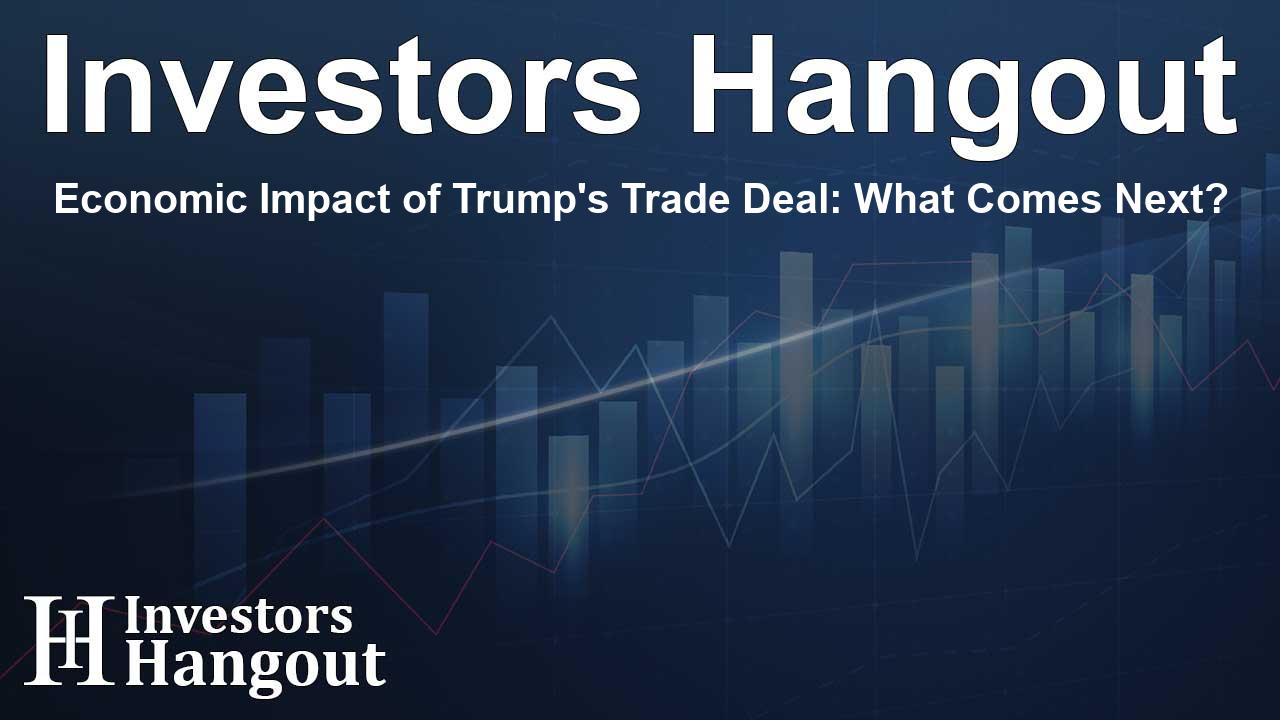Economic Impact of Trump's Trade Deal: What Comes Next?

Trade Deal Analysis and Its Implications
President Donald Trump’s recent trade agreement with the European Union has sparked a wave of criticism from economists across the board. The general consensus among experts is that the deal could have adverse effects on American consumers and businesses alike.
Insights from Notable Economists
Economist Peter Schiff shared his views online, stating, “Americans lose again” due to the new terms of the trade deal. He emphasizes that while U.S. consumers will face a 15% tariff on most European goods, the tariffs for key materials such as steel, aluminum, and copper could soar to 50%. This increase threatens to elevate production costs for a multitude of U.S. industries. In stark contrast, Schiff notes that European nations remain exempt from tariffs on many U.S. imports.
Criticism from Academic Circles
Expanding on these concerns, University of Michigan economist Justin Wolfers also expressed skepticism about the deal. He pointed out that trade agreements tend to be underwhelming due to the negligible impact of lower tariffs which have been in place for decades. Wolfers remarks, “When tariffs are 1-2%, there’s not much to gain from a trade war,” but warns that a 15% tax on imports can inflict considerable damage on American consumers.
The Broader Economic Landscape
Danish economist Lars Christensen countered the portrayal of this deal as beneficial for the EU and a triumph for Trump. He articulates that while the agreement may lower EU tariffs, it ultimately results in detrimental effects for the American economy. Christensen likened this situation to “shooting yourself in the foot.” He adds that the only true losers in this scenario seem to be U.S. consumers.
What This Means for U.S. Industry
The announcement of the trade deal brought an end to months of uncertainty regarding tariffs and trade dynamics with a key trading partner. It stipulates a 15% tariff on imports from Europe, while the EU pledges to invest $600 billion in the United States and purchase $750 billion worth of American energy. However, not every detail has been disclosed, particularly concerning arms purchases from the U.S.
Market Reactions and Future Outlook
Initial reactions from the market have been positive, with U.S. stock futures rebounding in the wake of the agreement. The S&P 500 Futures registered a 0.37% increase, while Nasdaq Futures rose by 0.50%, and Dow Futures gained over 150 points, marking an uptick of 0.33% during the early trading hours.
Negotiations with Other Global Powers
In parallel to these developments, it is noteworthy that discussions between U.S. and Chinese officials are set to resume in Stockholm to tackle ongoing trade challenges. Trump recently commented that a foundational deal with China has already been established. As the landscape continues to evolve, the long-term implications of these trade agreements for the U.S. economy remain to be seen.
Frequently Asked Questions
What are the key changes in Trump's trade deal with the EU?
The deal introduces a 15% tariff on most European goods imported into the U.S., while European nations continue to enjoy no tariffs on numerous U.S. exports.
How have economists reacted to the new trade deal?
Many economists, including Peter Schiff and Justin Wolfers, have criticized the deal, citing potential harm to American consumers and U.S. industries.
What investments are included in the trade deal?
The EU has committed to investing $600 billion in the U.S. and purchasing $750 billion worth of American energy.
How have stock markets responded to this trade deal?
U.S. stock futures saw an increase, with significant rises in Dow, S&P 500, and Nasdaq futures following the announcement.
What does this deal mean for U.S.-China relations?
While the U.S. navigates its trade relationship with the EU, discussions with China continue, as officials are expected to address pressing trade conflicts in upcoming talks.
About The Author
Contact Lucas Young privately here. Or send an email with ATTN: Lucas Young as the subject to contact@investorshangout.com.
About Investors Hangout
Investors Hangout is a leading online stock forum for financial discussion and learning, offering a wide range of free tools and resources. It draws in traders of all levels, who exchange market knowledge, investigate trading tactics, and keep an eye on industry developments in real time. Featuring financial articles, stock message boards, quotes, charts, company profiles, and live news updates. Through cooperative learning and a wealth of informational resources, it helps users from novices creating their first portfolios to experts honing their techniques. Join Investors Hangout today: https://investorshangout.com/
The content of this article is based on factual, publicly available information and does not represent legal, financial, or investment advice. Investors Hangout does not offer financial advice, and the author is not a licensed financial advisor. Consult a qualified advisor before making any financial or investment decisions based on this article. This article should not be considered advice to purchase, sell, or hold any securities or other investments. If any of the material provided here is inaccurate, please contact us for corrections.
